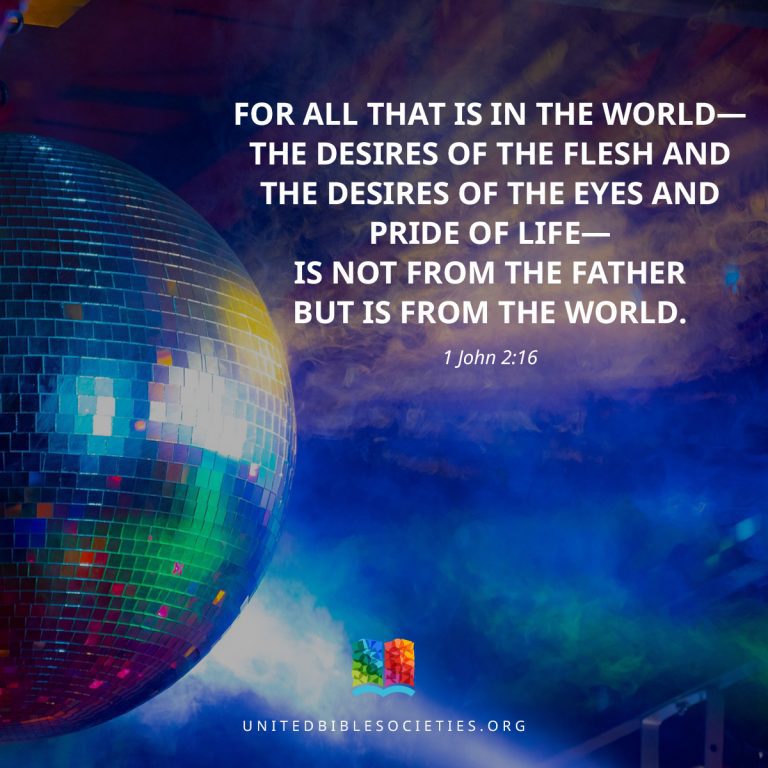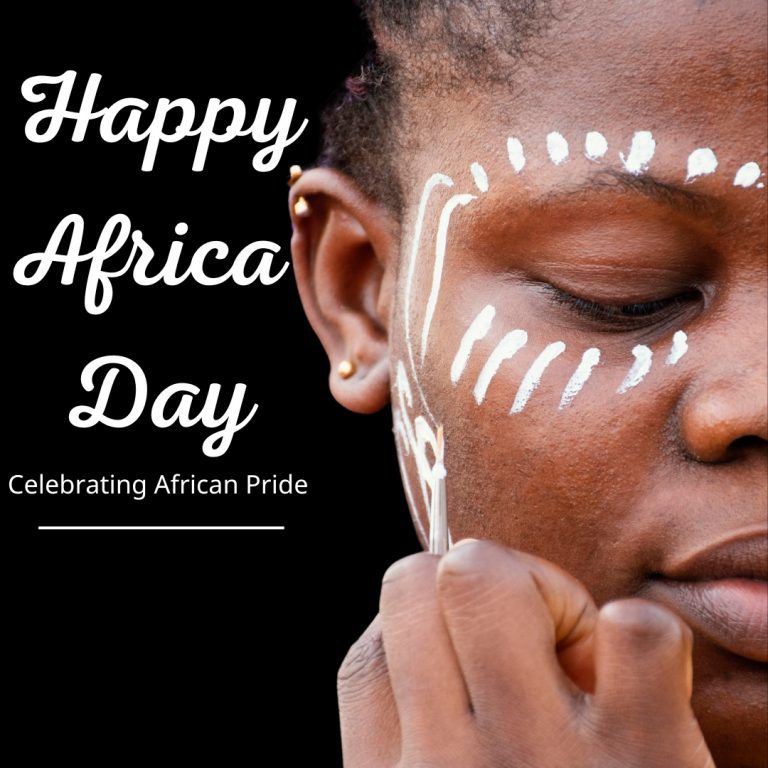
John 5:1-3 “Some time later, Jesus went up to Jerusalem for one of the Jewish festivals. Now there is in Jerusalem near the Sheep Gate a pool, which in Aramaic is called Bethesda, and which is surrounded by five covered colonnades. Here a great number of disabled people used to lie—the blind, the lame, the paralyzed.”
At the Pool of Bethesda, a multitude of sick and disabled people waited for healing. They believed that the waters of the pool had the power to heal, but many remained unhealed, waiting for their opportunity.
Reflection Questions:
- Have you ever felt like you are waiting for healing or relief from a difficult situation?
- How does the image of the sick waiting by the pool relate to your own moments of waiting for God to intervene?

As we commemorate Workers’ Day, we explore the Bible and learn from its characters who show us how to work hard, stay dedicated, and keep going even when things are tough.
Consider Joseph, whose story in Genesis records his journey from a lowly servant to a position of great influence in Egypt. Despite facing betrayal, false accusations, and years of imprisonment, Joseph remained strong in his faith and diligence. His undying commitment to his work, even in the face of bad situations, led to his promotion and the preservation of many lives during a time of famine. (Genesis 37 – 41)
Then there’s Ruth, a woman of remarkable loyalty and perseverance. Despite her status as a foreigner and widow, Ruth tirelessly worked in the fields to provide for herself and her mother-in-law, Naomi. Through her diligent labor and unwavering faithfulness, Ruth caught the attention of Boaz, who later became her husband. Her story reminds us that no act of labor, no matter how small, goes unnoticed by the One who sees and rewards our efforts. (Ruth 2 -8)
Let’s not forget about Nehemiah, whose passion for rebuilding the walls of Jerusalem serves as a testament to the transformative power of vision, determination, and teamwork. Despite facing opposition and tough challenges, Nehemiah organised the people to work tirelessly, each contributing their skills and resources to accomplish a task in record time. His leadership and unwavering faith in God’s provision inspire us to pursue our work with purpose and unity. (Nehemia 2 – 4)
And of course, we cannot overlook the example of Jesus Christ himself, who, during his earthly ministry, demonstrated humility, servanthood, and sacrificial love. Whether he was healing the sick, feeding the hungry, or teaching the crowds, Jesus embodied the essence of true labor, selflessly serving others for the glory of God. (Matthew, Mark, Luke and John)
As you reflect on Workers’ Day, may you draw inspiration from these biblical characters and their examples of dedication, resilience, and service. May their stories ignite a renewed passion for your work, knowing that your labor, when done with excellence and integrity, has the power to impact lives, glorify God, and usher in positive change in our world. Happy Workers’ Day!

Hurt can leave a deep wound, leaving you with anger, resentment, and a desire for justice. While these emotions are understandable, clinging to them only poisons your soul and hinders your healing. Forgiveness offers a path forward, a way to release yourself from the burden of bitterness and embrace peace.
But how do you forgive someone who has deeply hurt you? The Bible offers wisdom and guidance on this difficult journey. Here are 5 verses to help you navigate the path of forgiveness:
- Matthew 6:14-15:
“For if you forgive other people when they sin against you, your heavenly Father will also forgive you. But if you do not forgive others their sins, your Father will not forgive your sins.”
This verse highlights the link between your forgiveness of others and God’s forgiveness of you. Holding onto resentment hinders God’s grace in your life. Choosing to forgive, however difficult, opens you up to the blessings of God’s own forgiveness.
2. Ephesians 4:31-32:
“Let all bitterness and wrath and anger and clamor and slander be put away from you, along with all malice. Be kind to one another, tenderhearted, forgiving one another, as God in Christ forgave you.”
This verse calls you to actively remove negativity and negativity from your heart. It encourages kindness, compassion, and a willingness to forgive just as God has forgiven you. This deliberate act of replacing bitterness with kindness sets you on the path to healing.
3. Colossians 3:13:
“Bear with each other and forgive one another if any of you has a grievance against someone. Forgive as the Lord forgave you.”
This verse emphasizes patience and understanding. It reminds you that everyone makes mistakes and that forgiveness is a choice you make, not something you feel obligated to do. Remember God’s forgiveness towards you, and let it inspire you to extend the same grace to others.
4. Luke 6:37:
“Judge not, and you will not be judged; condemn not, and you will not be condemned; forgive, and you will be forgiven.”
This verse focuses on the reciprocal nature of forgiveness. By releasing others from their mistakes, you free yourself from the burden of judgment and open yourself to receiving forgiveness for your own shortcomings. Remember, forgiveness is not about condoning the hurt, but about choosing to let go and move forward.
5. 1 John 1:9:
“If we confess our sins, he is faithful and just and will forgive us our sins and purify us from all unrighteousness.”
This verse reminds you that forgiveness starts with acknowledging your own need for it. By confessing your own shortcomings and seeking God’s forgiveness, you open your heart to the power of forgiveness in your own life. This self-reflection allows you to practice the forgiveness you extend to others.
In conclusion, remember, forgiveness is a journey, not a destination. It takes time, patience, and a commitment to letting go. But the rewards are immeasurable. By following the guidance of these Bible verses, you can find the strength to forgive, release yourself from the grip of hurt, and experience the abundant peace and joy that comes with it.
Heroes’ Day is an occasion to honor and celebrate the courage, sacrifice, and impact of heroes who have shaped our lives and communities. In the Bible, we find many stories about men and women whose lives reflect profound faith and steadfastness. These biblical heroes serve as timeless examples of virtues we can aspire to in our own lives.
Abraham: The Father of Faith
Abraham, often referred to as the “father of faith,” is a towering figure in the Bible. His story is one of unwavering trust in God. When God called Abraham to leave his homeland and go to a place he would be shown, Abraham obeyed without hesitation (Genesis 12:1-4). His willingness to sacrifice his son Isaac, trusting in God’s promise, is a testament to his profound faith (Genesis 22:1-18).
Moses: The Deliverer
Moses is celebrated as the deliverer of Israel from slavery in Egypt. His life is marked by acts of extraordinary bravery and faith. Despite his initial reluctance, Moses answered God’s call to lead the Israelites out of bondage, facing Pharaoh’s wrath and the perils of the wilderness (Exodus 3-14). His leadership and unwavering reliance on God highlight the importance of faith and perseverance.
Esther: The Courageous Queen
Esther, a Jewish queen in Persia, displayed remarkable courage and wisdom. When her people faced destruction, Esther risked her life by approaching King Xerxes uninvited to plead for their salvation. Her famous declaration, “If I perish, I perish,” (Esther 4:16) shows her bravery and selflessness in the face of great danger.
David: The Shepherd King
David, the shepherd boy who became king, is renowned for his faith and courage. His defeat of the giant Goliath with a sling and a stone is a powerful example of trusting in God’s strength rather than human might (1 Samuel 17). David’s life, though marked by imperfections, is a testament to God’s grace and the power of repentance.
Daniel: The Uncompromising Prophet
Daniel’s story is one of steadfast faith in a foreign land. Despite the threat of death, he refused to give up on his faith, continuing to pray to God even when it was not allowed. His survival in the lions’ den (Daniel 6) is a powerful reminder of God’s protection over those who remain faithful to Him.
Mary: The Obedient Servant
Mary, the mother of Jesus, exemplifies obedience and humility. When the angel Gabriel announced that she would bear the Son of God, Mary’s response was one of submission to God’s will: “I am the Lord’s servant. May your word to me be fulfilled” (Luke 1:38). Her faith and willingness to accept God’s plan played a crucial role in the story of salvation.
Paul: The Zealous Apostle
Paul, once a persecutor of Christians, became one of the most zealous apostles of Christ. His missionary journeys, tireless preaching, and numerous epistles have profoundly shaped Christian theology and practice. Paul’s transformation and dedication to spreading the gospel, despite immense suffering and persecution, are inspiring examples of redemption and commitment (Acts 9, 2 Corinthians 11:23-28).
Conclusion
As we celebrate Heroes’ Day, these biblical figures remind us that true heroism is rooted in faith, obedience, and a willingness to serve God’s purpose, even at great personal cost. Their stories encourage us to cultivate these virtues in our own lives, trusting that God can use ordinary people to accomplish extraordinary things.

Do you know God’s grace? Here are 7 Bible verses to inspire you to understand this grace.
- Romans 3:23-24 for all have sinned and fall short of the glory of God, and are justified by his grace as a gift, through the redemption that is in Christ Jesus
To understand God’s grace, we have to acknowledge that we have done what is wrong in God’s eyes. We have sinned. We are in need of forgiveness and redemption.
- Ephesians 2:8-9 For by grace you have been saved through faith. And this is not your own doing; it is the gift of God, not a result of works, so that no one may boast.
God’s grace is a free gift that doesn’t depend on any good deeds you have done. God’s grace is for all who believe in Jesus Christ.
- James 4:6-7 But he gives more grace. Therefore it says, “God opposes the proud but gives grace to the humble.” Submit yourselves therefore to God. Resist the devil, and he will flee from you.
In humility we turn to God and confess that we have done wrong. In humility we receive God’s grace and he will lift us up.
- John 1:14 And the Word became flesh and dwelt among us, and we have seen his glory, glory as of the only Son from the Father, full of grace and truth.
God isn’t a distant God. He came to us and lived among us as one of us. Jesus is full of grace and truth.
- Hebrews 4:15-16 For we do not have a high priest who is unable to sympathize with our weaknesses, but one who in every respect has been tempted as we are, yet without sin. Let us then with confidence draw near to the throne of grace, that we may receive mercy and find grace to help in time of need.
You can come to Jesus, just as you are. He knows our weaknesses. Because of the grace of God, we are forgiven our sins.
- Titus 3:4-7 But when the goodness and loving kindness of God our Savior appeared, he saved us, not because of works done by us in righteousness, but according to his own mercy, by the washing of regeneration and renewal of the Holy Spirit, whom he poured out on us richly through Jesus Christ our Savior, so that being justified by his grace we might become heirs according to the hope of eternal life.
We don’t earn or deserve God’s grace by our good deeds, but it’s given according to God’s own mercy. By grace we are saved through our faith and even become heirs to the kingdom of God.
- Revelation 22:21 The grace of the Lord Jesus be with all. Amen.
This is the very last verse of the Bible and it reminds and expresses the wish for God’s grace be with you. “Amen” means “surely”, “truly” or “so be it.” We live by the hope and trust in God’s grace every day.

Get ready to mark your calendars with colorful crayons because April 2nd isn’t just any ordinary day – it’s International Children’s Book Day! This day is all about diving into the charming world of children’s literature. It’s like a giant hug for books and a high-five for reading, inspiring kids everywhere to embark on grand adventures through the pages of their favorite stories. This special day aims to promote children’s books and reading, as well as to inspire a love of literature among children worldwide. So grab your favorite cozy spot, your trusty bookmark, and let’s journey together through the wonderful land of books!
As you celebrate International Children’s Book Day, it’s an opportune moment to reflect on the profound impact of Bible stories in the lives of your little ones. The Bible itself is a rich source of storytelling, filled with narratives that have captivated hearts and minds for generations. The stories within the Bible speak to the core of human experience and offer guidance for living a life of faith and virtue.
Bible Story books hold significant importance as books for children for several reasons:
- Guidance on what is right and wrong: The Bible contains timeless stories that teach important moral and ethical lessons, such as kindness, compassion, honesty, and forgiveness. These stories provide children with a foundation for understanding right from wrong and help shape their character and values. An example is the story of The Good Samaritan (Luke 10 v 25-37).
- Spiritual and Religious Education: The Bible serves as a fundamental tool for teaching children about faith, spirituality, and the principles of Christianity. It helps children develop a sense of connection God and understand their place within their respective communities. An example is the story of Daniel in the lions’ den (Daniel 6).
- Value in literature: Many stories in the Bible are beautifully crafted narratives with rich imagery, symbolism, and poetic language. Introducing children to these stories can foster an appreciation for literature and storytelling, enhancing their language skills and imagination. An example is the Creation story (Genesis 1 -2).
- Source of Comfort and Guidance: The Bible offers comfort and reassurance to children during difficult times. Its stories of hope, perseverance, and divine love can provide comfort and guidance when children face challenges or uncertainties in their lives. The story of Jairus’ daughter (Mark 5 v 21-43).
- Family and Community Bonding: Reading and discussing Bible stories together as a family or within a religious community can strengthen familial bonds and create a sense of belonging and shared identity. It provides opportunities for meaningful conversations and connections between generations. Story of Joseph and his brothers (Genesis 37-50).
- Critical Thinking and Reflection: Encouraging children to engage critically with the stories and teachings of the Bible fosters their ability to think analytically, ask questions, and reflect on their own beliefs and values. This critical thinking skill is essential for their intellectual and spiritual development. The Parable of the Talents (Matthew 25:14-30)
It is very important that you take part in this celebration (Established by the International Board on Books for Young People (IBBY)) by making Bible story books a priority in your children’s reading materials, educational settings, and households. You must focus not only on developing their intellect but also on shaping their character, preparing them to face life’s trials with integrity and determination. Let’s unite in embracing the wisdom found in these stories, planting the seeds for a future marked by compassion and enlightenment for all.

How does the Bible view women? At face value, some of its messages and examples can seem oppressive or devaluing. But when you learn more about how Jesus responded to the Bible’s historical and cultural context, you may rethink your first impressions. Christ entered into a specific time and culture that had assumptions very different from ours. How can understanding the biblical context inform our reading? How can the context help us to better understand who Jesus is—what he values, loves, and expects of his followers? Take a look, traveling all the way back to the culture Jesus entered.
How the Greeks Viewed Women
Let’s begin with the philosophers. Writers and thinkers often infuse a culture with certain beliefs—and this was especially so in the Greco-Roman world. When examined closely, some of their ideas may seem surprisingly antiquated to the modern reader.
For example, the revered philosopher Plato believed that women should be confined to the home while men tended to the business of state and commerce. Aristotle went even further, teaching that women were inferior to men, incapable of abstract thought, and emotionally volatile. Thus husbands and fathers were to rule over their wives and daughters. This thinking reflects the basic attitude toward women during the classical period.
How did these attitudes affect a woman’s life? The picture is not a pretty one. A young Greek girl is routinely married off to an older man. Her husband is free to take a concubine, and romantic love is not expected within marriage. Her role is to bear and raise children and run the household. She will rarely leave the house. Her education is limited to learning domestic tasks. She is not permitted to vote or hold property. Why would she be? As Euripides the playwright notes, “A woman is handicapped by intellect.” Thucydides helps him along by writing, “The name of a decent woman, like her person, should be shut up in the house.”
How the Jews Viewed Women
By Jesus’s time Greek ideas—including these ideas about women—had gradually crept into Jewish culture, despite Old Testament writings to the contrary. In the creation account in Genesis, God creates human beings as both male and female, giving them co-equal stewardship over the earth (Genesis 1:26-30). Throughout the Old Testament, women are given equal access to God’s law and held equally responsible to keep it.
The Old Testament record is replete with women whose great courage often surpasses that of the men around them. The stories of Miriam, Rahab, Ruth, Deborah, Hannah, Abigail, and Esther are prime examples of women whose insight and fortitude greatly influence the biblical narrative and the way God’s people understood themselves.
The Jewish understanding of women was so affected by exile, conquest, and trade that by Jesus’s time women were discouraged from studying Torah, God’s law, and encouraged to stay home to fulfill household duties. They attended synagogue assemblies seated separately from the men. The Greek-educated Jewish philosopher Philo, a contemporary of Jesus, saw women as having weak judgment and considered them unfit to learn the law. Some rabbis even went so far as to encourage men to limit their conversations with their own wives. What was the point of talking to someone with little knowledge of the law?
How Jesus Viewed Women
Into this distortion of God’s original intent for women comes a new teacher, the rabbi called Jesus of Nazareth. What do we know about Jesus’s relationships with women? Did he hold the same opinions as his culture? Let’s take a look at a few of his encounters with women.
Jesus speaks to a Samaritan woman in public (John 4:4-30)
Jesus shocks the woman at the well by asking her for a drink. Thus he steamrolls over cultural taboos against men speaking to women as well as Jewish prejudice against Samaritans. “You are a Jew and I am a Samaritan woman. How can you ask me for a drink?”
Jesus then reveals himself to her as the Messiah and the giver of the living water for which she longs.
Jesus teaches a woman one-on-one (Luke 10:38-42)
Women were not expected to study Torah, yet this renegade rabbi singles out one woman and opens Scripture to her. Mary “sat down at the feet of the Lord and listened to his teaching.” This position was that of the traditional rabbinic student.
When her sister complains about needing help, Jesus tells her that “Mary has chosen what is better, and it will not be taken away from her.”
Jesus comforts a widow and confronts death (Luke 7:11-17)
“Don’t cry,” Jesus says to a grieving widow whose son lies dead in his coffin. He touches the coffin, defying ceremonial law. Jaws drop in amazement as the young man sits up and begins to speak. Jesus gives the widow’s son back to her, alive and well.
Jesus touches an “unclean” woman (Luke 8:43-48)
Ceremonially unclean due to a chronic hemorrhage, a woman touches the hem of Jesus’ cloak. “Daughter,” Jesus speaks tenderly. “Your faith has healed you. Shalom.”
Jesus touches an infirm woman (Luke 13:10-16)
The religious leaders object to Jesus’s laying his healing hands on a crippled woman on the Sabbath.
“You hypocrites!” Jesus does not mince words. “Any one of you would untie your ox or your donkey from the stall and take it out to give it water on the Sabbath.Now here is this descendant of Abraham whom Satan has kept in bonds for eighteen years; should she not be released on the Sabbath?”
Jesus deals with a woman caught in adultery (John 8:1-11)
The woman’s accusers are silenced by Jesus’s words, “Whichever one of you has committed no sin may throw the first stone at her.” But he is gentle in his conversation with her.
Jesus allows Mary to anoint him (John 12:1-8)
When people are horrified at Mary’s extravagant outpouring of love, Jesus silences them all. Rather than rebuking her for touching him in this intimate way, he lavishes high praise on her. “Leave her alone; she’s anointing me for burial. This story will be told wherever the Gospel is preached.”
Jesus appears first to a woman after his Resurrection (John 20:11-18)
Although women were considered to be unreliable witnesses in court, Jesus assigns Mary Magdalene the task of being the first witness to the Resurrection.
Scripture’s Good News for Women
So what did Jesus really think of women? Did he touch them? Did he talk with them? Did he teach them? Did he give equal moral standing with men? Did he value them?
The record speaks for itself. First-century women in Palestine were second-class citizens. Sadly, some church leaders have still viewed and treated women in this way. But Jesus turned the tables on his culture, and his example calls us to do the same. Again and again, Jesus affirmed women’s value and dignity.
As the apostle Paul affirms in Galatians 3:26-28 (NIV): “So in Christ Jesus you are all children of God through faith, for all of you who were baptized into Christ have clothed yourselves with Christ. There is neither Jew nor Gentile, neither slave nor free, nor is there male and female, for you are all one in Christ Jesus.”

Come feel Africa’s rhythm! Its heart tells stories of winning, strength, and togetherness. As the sun shines on its big lands and lively cultures, we’re on the edge of Africa Day. It’s a party that goes beyond borders, celebrating what it means to be African.
A – Abundance of Blessings
Africa is blessed with natural wonders and resources, reflecting God’s abundant provision. Psalm 68:19 reminds us, “Praise be to the Lord, to God our Savior, who daily bears our burdens.”
F – Faithful Foundations
Africa’s history is intertwined with faith, from the ancient civilizations to modern-day believers. Hebrews 11:1 inspires us, “Now faith is confidence in what we hope for and assurance about what we do not see.”
R – Richness of Diversity
Africa’s diverse peoples and cultures showcase the beauty of God’s creation. Galatians 3:28 proclaims, “There is neither Jew nor Gentile, neither slave nor free, nor is there male and female, for you are all one in Christ Jesus.”
I – Inheritance of Identity
Africa’s heritage is a testament to the enduring legacy of its people. Psalm 16:6 assures us, “The boundary lines have fallen for me in pleasant places; surely I have a delightful inheritance.”
C – Call to Community
Africa’s communal spirit fosters unity and solidarity among its inhabitants. Ecclesiastes 4:9-10 teaches us, “Two are better than one, because they have a good return for their labor: If either of them falls down, one can help the other up. But pity anyone who falls and has no one to help them up.”
A – Affirmation
The Bible affirms the inherent value and dignity of every individual, echoing the principle of ubuntu prevalent in many African cultures.”So God created mankind in his own image, in the image of God he created them; male and female he created them.” – Genesis 1:27
As we journey through the spiritual essence of AFRICA, let us embrace its blessings, celebrate its diversity, and honor its heritage. For in this vast and vibrant continent, we discover echoes of God’s faithfulness, reminders of our shared humanity, and glimpses of His divine purpose for all creation. Let us unite in prayer, as Psalm 133:1 proclaims, “How good and pleasant it is when God’s people live together in unity!”

Day 1: The Pool of Bethesda – A Place of Waiting
At the Pool of Bethesda, a multitude of sick and disabled people waited for healing. They believed that the waters of the pool had the power to heal, but many remained unhealed, waiting for their opportunity.

Honouring Workers: Happy Workers’ Day
As you reflect on Workers' Day, may you draw inspiration from these biblical characters and their examples of dedication, resilience, and service. May their stories ignite a renewed passion for your work, knowing that your labor, when done with excellence and integrity, has the power to impact lives, glorify God, and usher in positive change in our world. Happy Workers' Day!

Forgiving when hurting
Hurt can leave a deep wound, leaving you with anger, resentment, and a desire for justice. While these emotions are understandable, clinging to them only poisons your soul and hinders your healing. Forgiveness offers a path forward, a way to release yourself from the burden of bitterness and embrace peace.

Unlocking the Spiritual Essence of AFRICA:
Come feel Africa's rhythm! Its heart tells stories of winning, strength, and togetherness. As the sun shines on its big lands and lively cultures, we're on the edge of Africa Day. It's a party that goes beyond borders, celebrating what it means to be African.

At the Pool of Bethesda, a multitude of sick and disabled people waited for healing. They believed that the waters of the pool had the power to heal, but many remained unhealed, waiting for their opportunity.

As you reflect on Workers' Day, may you draw inspiration from these biblical characters and their examples of dedication, resilience, and service. May their stories ignite a renewed passion for your work, knowing that your labor, when done with excellence and integrity, has the power to impact lives, glorify God, and usher in positive change in our world. Happy Workers' Day!

Hurt can leave a deep wound, leaving you with anger, resentment, and a desire for justice. While these emotions are understandable, clinging to them only poisons your soul and hinders your healing. Forgiveness offers a path forward, a way to release yourself from the burden of bitterness and embrace peace.

Come feel Africa's rhythm! Its heart tells stories of winning, strength, and togetherness. As the sun shines on its big lands and lively cultures, we're on the edge of Africa Day. It's a party that goes beyond borders, celebrating what it means to be African.
